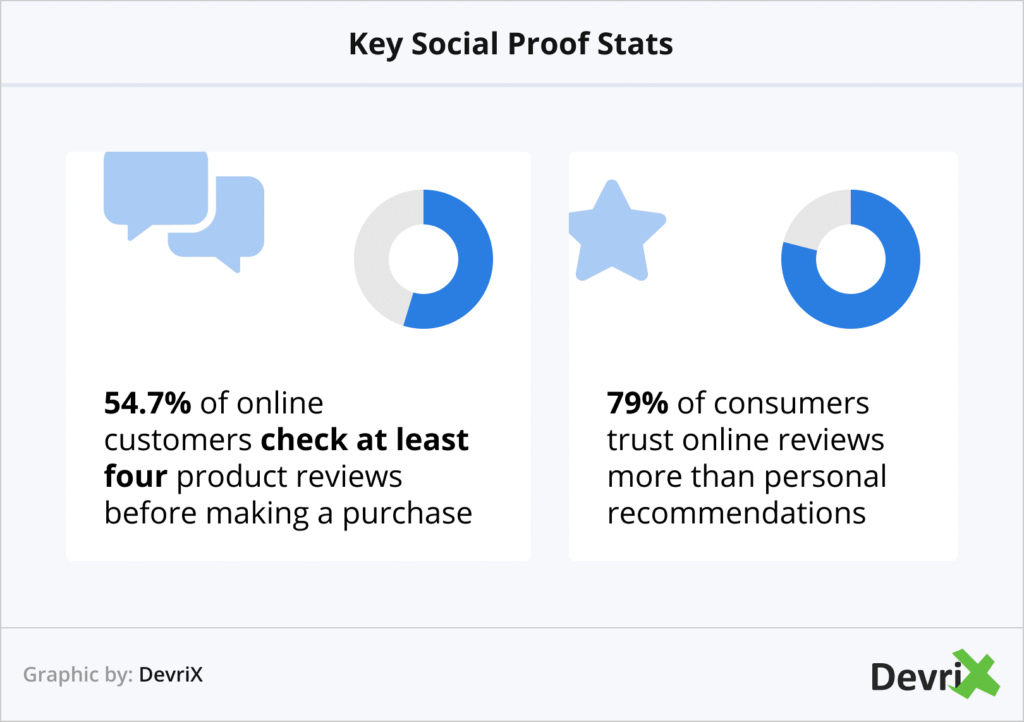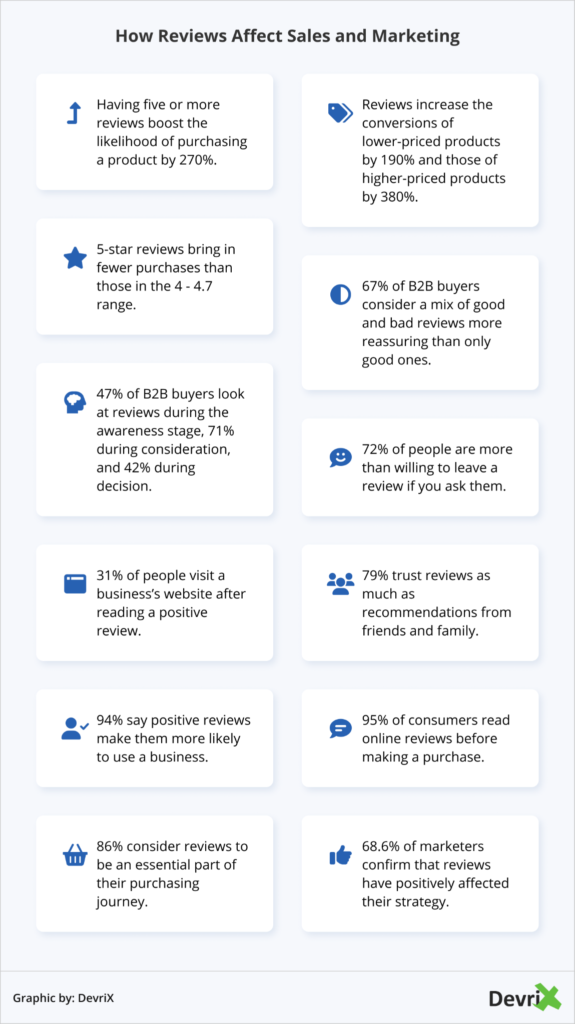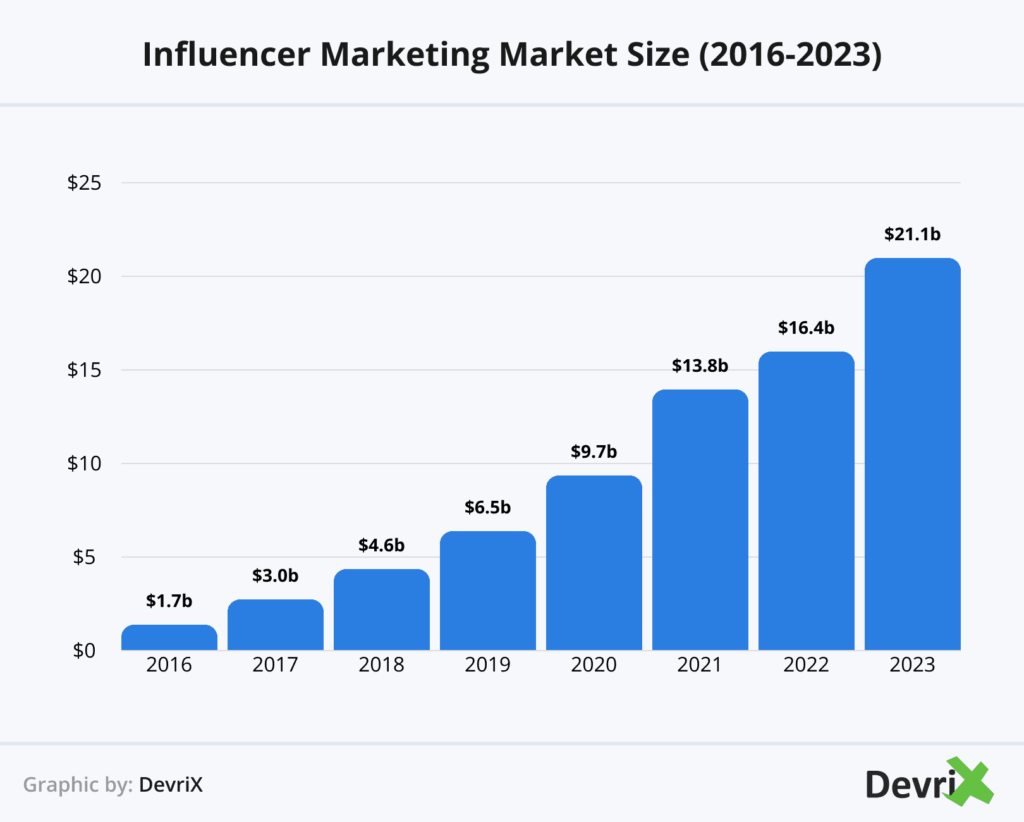How a WordPress Agency Builds Social Proof for Small Business Success
In today's competitive market, small businesses must work hard to build trust and credibility. Social proof, similar to digital word-of-mouth, plays a crucial role in influencing consumer behavior. It serves as evidence that a business is dependable and committed to customer satisfaction, which can greatly sway purchasing decisions. Consumers overwhelmed with choices often look for reassurance before making purchases. Social proof comes into play here, offering a layer of trust through testimonials, reviews, and endorsements. These insights from real customers help potential buyers feel more secure in their decision to choose a business.

Research shows that a whopping 97% of online customers make a purchase based on reviews. Also, half of the people who buy products online leave reviews about them that can impact consumer behavior. The psychology behind social proof is significant. When people see others making positive decisions, it creates a sense of safety and validation. This not only boosts consumer confidence but also drives them to make purchases. Social proof adds a human element to the relationship between businesses and consumers, enhancing the connection beyond mere transactions.
In this article, the WordPress agency DevriX will explore the profound importance of social proof in the marketing strategies of small businesses and unveil the psychological impact it has on consumer behavior. We will also discuss how social proof functions as a powerful influencer, creating a sense of safety and validation that guides consumers in their decision-making processes.
Why Is Social Proof Important?
Social proof is the idea that people trust and follow the actions and opinions of others when making decisions. In marketing, it means customers are more likely to choose products or services that have been positively reviewed and approved by others. In psychology, social proof is a type of conformity. When an individual feels like they do not have enough knowledge to make an informed decision, they assume that their peers, or surrounding people know it better. That phenomenon is also known as herd behavior - one appropriates the mode of behavior of the majority.

The concept of social proof was identified by social psychologist Muzafer Sherif in 1935 and originated from his experiment on the autokinetic effect. In this experiment, subjects in a dark room were asked to estimate the movement of a stationary light, which appeared to move due to the lack of a reference point. Initially, individuals provided their estimates, but when placed in groups, their estimates converged to a common value. Even when later asked individually, their estimates aligned with the group consensus rather than their original ones.
This demonstrated that people tend to align their actions with those of others, a concept now known as social proof. The impact of social proof is deeply rooted in human psychology. When people see others making positive choices, it reassures and validates their own decisions. This is crucial in a world full of options. Testimonials and recommendations from others signal to potential customers that a small business is trustworthy and satisfying.
Social proof boosts conversion rates as potential customers are influenced by their peers' positive experiences, increasing the likelihood of making a purchase or engaging with the business. It also builds credibility by showcasing real-life examples of satisfied customers, setting a business apart from competitors. This differentiation helps small businesses gain a competitive edge by being seen as a trusted choice.
How Can You Leverage WordPress for Boosting Social Proof Online?
If you had your small business website built on WordPress, you’re in luck! - as WordPress has plenty of built-in social proof tools you can use to boost your prospects.

1. Social Sharing Buttons
Social sharing buttons can help your site visitors engage with on-page content on the spot. You can choose from Easy Social Share, Shareaholic, or Social Media Share Buttons & Social Sharing Icons, among others. The benefits are:
2. Increase Brand Visibility
Integrating social sharing buttons into your WordPress site is essential for increasing brand visibility. These buttons allow visitors to easily share your content across various social networks, expanding your reach and attracting new visitors. The more your content is shared, the more visibility your brand gains, leading to increased recognition and awareness.
3. Enhance Blog Engagement
Social sharing buttons significantly boost engagement on your blog. They enable readers to share your posts effortlessly, increasing the reach and visibility of your content. This not only drives higher traffic but also fosters a sense of community among your readers, encouraging more interactions and engagement with your posts.
4. Support Link Building
Link building is crucial for SEO and improving your site's search engine ranking. Social sharing buttons facilitate easy sharing of your content, potentially leading to more backlinks. A community of engaged readers sharing your content can build trust and credibility, further boosting your SEO efforts and improving your online presence.
5. Improve Content Reach
Adding social sharing buttons to your WordPress site helps increase the reach of your content. Readers can share your posts with their networks, extending your content's visibility to a broader audience. This is particularly beneficial for bloggers aiming to expand their readership and increase content visibility.

6. Generate More Website Traffic
Social sharing buttons are effective tools for driving more traffic to your website. They allow visitors to share your blog posts on their social networks, reaching a wider audience and attracting more visitors. This creates a positive feedback loop, encouraging more traffic and engagement on your site.
WordPress Plugins for Social Sharing
1. WP Social Sharing Plugins
Using WordPress plugins simplifies the integration of social sharing buttons. These plugins offer customizable buttons that can be added to your posts and pages, enhancing user engagement and making it easier for readers to share your content.
2. The Plus Addons for Gutenberg
For those using the Gutenberg editor, The Plus Addons for Gutenberg provides an extensive collection of blocks, including social sharing buttons. This plugin can replace multiple plugins, offering a streamlined and efficient solution for adding social sharing capabilities to your WordPress site.
3. Video Content
Incorporating video content can significantly boost engagement on your WordPress site. However, it’s crucial to maintain high WordPress site performance. Slow-loading videos can negatively impact user experience and search engine rankings. Choose a hosting platform that optimizes video delivery to ensure your site remains fast and efficient. This not only enhances user experience but also keeps your site competitive in search engine rankings.

Pros & Cons of Social Proof in Small Business marketing
Harnessing social proof in marketing is a strategic imperative for small businesses, offering a plethora of advantages while necessitating a nuanced approach to navigate potential drawbacks.
Advantages
a. Increased Conversions: Social proof serves as a potent catalyst for increased conversion rates. When potential customers witness positive experiences shared by others, whether through reviews, testimonials, or endorsements, the likelihood of them taking desired actions—such as making a purchase or engaging with the business—substantially rises. This positive influence on consumer behavior translates directly into higher conversion rates.
b. Improved Trust: Building trust is a cornerstone of successful marketing, and social proof is a key facilitator. Real-life experiences and recommendations from satisfied customers create an authentic narrative that resonates with potential clients. The transparent nature of social proof fosters a sense of reliability, assuring consumers that the business is credible and worthy of trust.
c. Increased Customer Loyalty: Social proof is not only a tool for attracting new customers but also for fostering loyalty among existing ones. Continuously showcasing positive experiences and feedback from a satisfied customer base strengthens the relationship between the business and its clients. This ongoing validation contributes to customer loyalty, creating a community of advocates who are more likely to remain loyal to the brand.
Drawbacks
a. Risk of Over-Reliance: While social proof is a powerful marketing tool, there's a risk of over-reliance. Relying solely on social proof without addressing other aspects of the business can create an imbalanced marketing strategy. It's crucial to strike a balance, ensuring that social proof is integrated seamlessly into an overall marketing framework.
b. Possibility of Fake Reviews: The authenticity of social proof is paramount. The rise of fake reviews poses a challenge, as businesses may succumb to the temptation of manufacturing positive feedback. Such practices not only erode trust but can also lead to legal consequences. Vigilant monitoring and stringent measures against fake reviews are essential to maintain the integrity of social proof.
c. Need for Regular Monitoring and Management: Social proof requires continuous monitoring and management. The dynamics of online interactions and consumer sentiment can change rapidly. Businesses must stay vigilant to address negative reviews promptly, encourage authentic testimonials, and adapt their social proof strategy to evolving market trends.
6 Types of Social Proof in Marketing
Social proof manifests in various forms, each wielding a unique influence in shaping consumer perceptions and decisions. Here, we explore several types of social proof that small businesses can leverage effectively in their marketing strategies.
1. Customer Reviews and Ratings
Perhaps the most ubiquitous form of social proof, customer reviews, and ratings carry immense weight. Positive testimonials from satisfied customers and high ratings provide tangible evidence of a business's value. Displaying these testimonials prominently on websites and marketing materials creates trust, giving potential customers insights into the real-life experiences of others.

2. Celebrity Endorsements
Aligning a small business with a well-known personality or influencer can significantly boost credibility. Celebrity endorsements leverage the fame and trust associated with the individual, transferring that trust to the endorsed product or service. This form of social proof is particularly effective when the celebrity shares a genuine connection with the business or its values.
3. User-Generated Content (UGC)
Encouraging customers to create and share content related to a brand—be it photos, videos, or testimonials—constitutes user-generated content. UGC is a dynamic form of social proof that showcases authentic experiences and engages the broader community. Small businesses can harness UGC by running campaigns or featuring customer-created content on their platforms, enhancing reliability and authenticity.
4. Social Media Engagement
The level of engagement a business receives on social media platforms serves as a real-time indicator of its popularity and relevance. Metrics, like likes, shares, comments, and follower counts on platforms such as Instagram, Facebook, and Twitter, are forms of social proof. A high engagement rate signals to potential customers that the business is active and resonates positively with its audience.
5. Expert Opinions
Endorsements from industry experts or authoritative figures in a specific field contribute to the credibility of a small business. Whether it's a positive review from a well-respected professional or an endorsement from a niche expert, such opinions bolster the business's reputation. They can be highlighted in marketing materials to appeal to a discerning audience.
6. Effective Utilization
Each type of social proof serves a unique purpose in marketing. For instance, customer reviews are powerful for establishing trust, while celebrity endorsements elevate the brand's perceived value. User-generated content and social media engagement foster community and relatability, showcasing the brand's popularity. Expert opinions, on the other hand, position the business as a credible authority within its industry.
How To Build Social Proof for Your Small Business: 12 Strategies
In the competitive landscape of small businesses, establishing a strong foundation of social proof is a game-changer. It not only builds trust but also sets the stage for increased credibility and customer loyalty. In this section, we present actionable strategies for small businesses to effectively build and showcase social proof.
1. Encourage Customer Reviews

Customer reviews are the backbone of social proof. Actively encourage satisfied customers to leave reviews on platforms like Google, Yelp, and your website. Implement post-purchase emails or incentives to motivate customers to share their experiences. Ensure that the process is simple and accessible, making it easy for customers to contribute their feedback.
2. Leverage Social Media
Harness the power of social media to amplify social proof. Regularly share positive customer testimonials, reviews, and user-generated content on platforms like Instagram, Facebook, and Twitter. Engage with your audience, respond to comments, and showcase the human side of your business. Social media acts as a dynamic stage where potential customers can witness real-time interactions and positive experiences.
3. Partner with Influencers

Collaborating with influencers relevant to your industry can exponentially increase your social proof. Identify influencers whose values align with your brand and whose audience matches your target demographic. Influencers can provide authentic testimonials, create content featuring your products or services, and significantly expand the reach of your brand to their followers.
4. Provide Exceptional Customer Service
Exceptional customer service is an organic generator of positive social proof. Go above and beyond to address customer needs promptly and efficiently. Encourage your customer service team to create positive experiences, turning potentially negative situations into opportunities for stellar service. Happy customers are more likely to share their positive experiences, contributing to a reservoir of social proof.
5. Showcase Testimonials and Case Studies
Create a dedicated section on your website to showcase customer testimonials and case studies. Craft compelling stories that highlight specific challenges your customers faced and how your product or service provided solutions. This narrative-driven approach resonates with potential customers, demonstrating real-world applications and positive outcomes. You can get your creative juices running by the amazing way Visme and SmartBox Dental did it.
6. Utilize Before-and-After Stories
If applicable to your business, before-and-after stories provide powerful visual evidence of your product or service's impact. Whether it's a home renovation, a fitness journey, or a skincare transformation, visual proof adds authenticity and resonates strongly with potential customers.
7. Feature Customer Success Stories in Marketing Materials
Incorporate customer success stories in your marketing materials, including brochures, flyers, and advertisements. Seeing positive outcomes and real faces associated with your brand reinforces credibility. Highlighting these success stories in physical materials further solidifies your brand's impact.
8. Implement a Loyalty Program
Create a loyalty program that rewards customers for repeat business. This not only encourages customer retention but also generates positive social proof. Customers who actively participate in your loyalty program and showcase their rewards contribute to the narrative of satisfied, returning customers.
9. Participate in Industry Awards and Recognitions
Having a badge from a renowned company on your website can boost your authority in your industry. If your small business has received industry awards, certifications, or recognitions, prominently display these accolades on your website and marketing materials. External validation serves as powerful social proof, signaling to potential customers that your business is recognized and respected in its field.

10. Request and Share User-Generated Content
Encourage customers to create and share content featuring your products or services. Repurpose this user-generated content across your marketing channels. Not only does this strategy provide a diverse range of social proof, but it also engages your community and fosters a sense of inclusivity. 93% of customers find UGC helpful for purchasing decisions.
11. Engage in Community Initiatives
Participate in community events, sponsorships, or partnerships. When your business is actively involved in the community, it creates a positive perception. Capture these engagements through photos and share them on your website and social media. Community involvement serves as indirect social proof, showcasing your business's commitment beyond transactions.
12. Monitor and Respond to Feedback
Actively monitor online platforms for customer feedback, both positive and negative. Respond promptly and professionally to all types of feedback. Demonstrating a commitment to customer satisfaction, even in challenging situations, contributes to a positive public image and fosters trust.
Wrapping Up
In conclusion, social proof is crucial for small businesses. It builds trust and credibility, connecting businesses with consumers. By encouraging reviews, using social media, partnering with influencers, providing great customer service, and showcasing social proof on your WordPress site, businesses can genuinely engage with their audience.
This strategy not only drives purchasing decisions but also fosters lasting customer relationships. In a trust-driven market, strong social proof on a WordPress site is essential for small business success.
Author bio:
Mariela Kashukeeva is an Outreach & Content Specialist at DevriX. With over 7-year experience in SEO, she is responsible for establishing collaboration opportunities with high-authority websites and creating amazing content.







